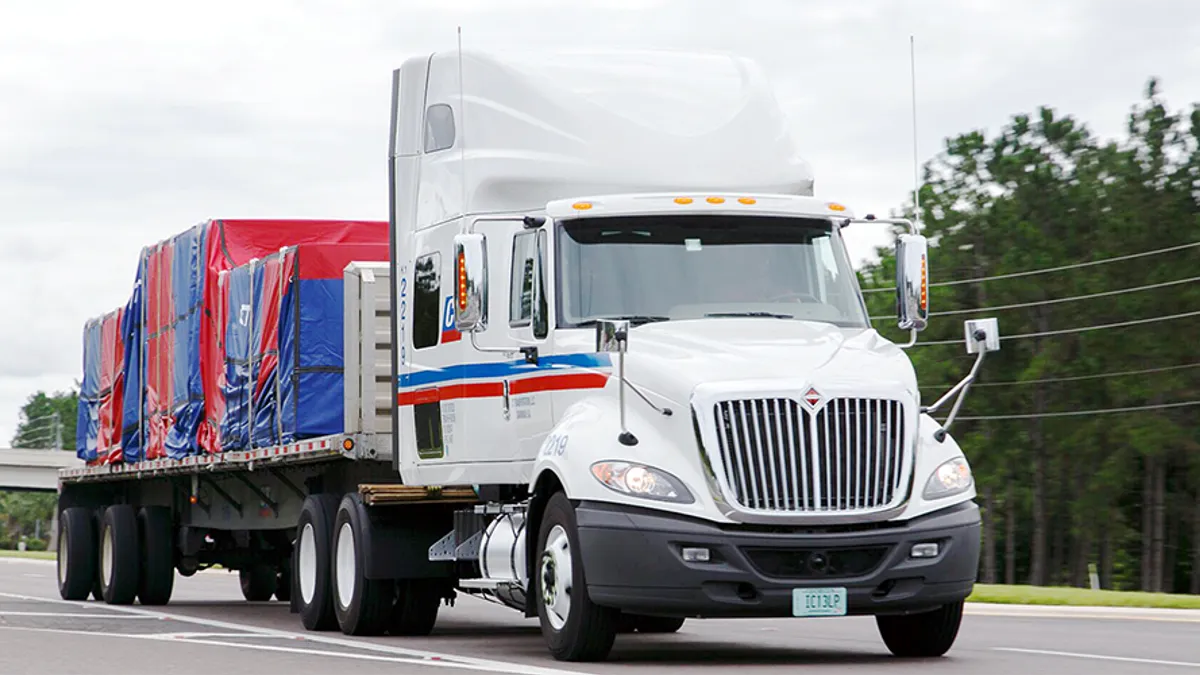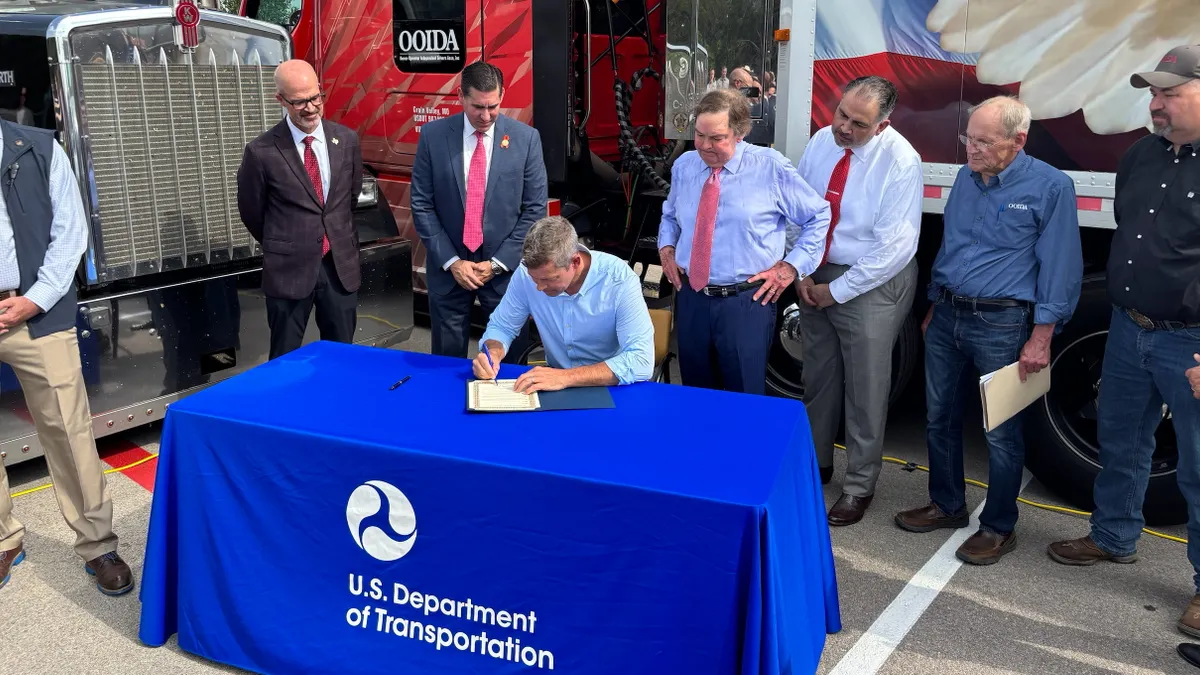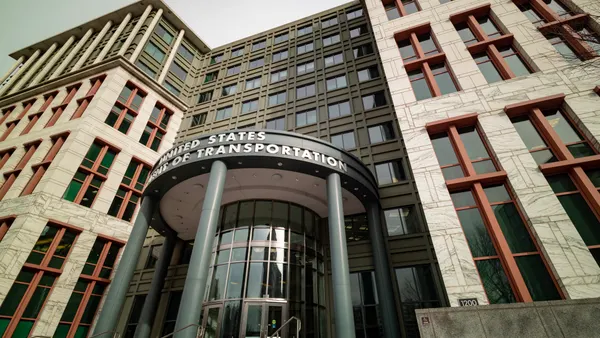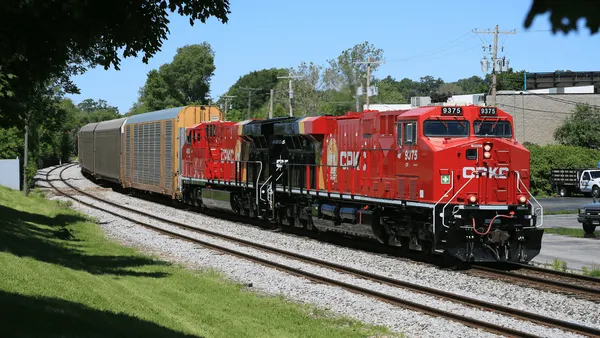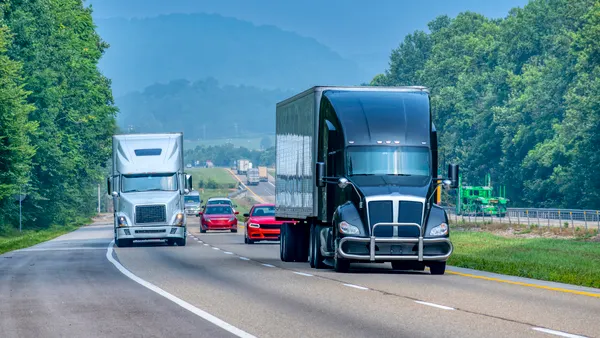Dive Brief:
- Texas Gov. Greg Abbott signed HB 19 into law on Wednesday, giving Texas a major win almost two years after an aggressive push began by the American Trucking Associations and its allies to reform court procedures and limit jury awards.
- HB 19 is a wide commercial bill, covering vehicles including Class 8 trucks, delivery vehicles and rideshare passenger cars. The bill would not allow operators of commercial vehicles to be sued until the driver was first found liable in a court decision. The bill's author, state Rep. Jeff Leach from Plano, Texas, called this an establishment of a "bifurcated" procedure in the bill analysis.
- The newly minted Texas law also establishes other procedures for trials, including rules widening the admissibility of photos and videos. Texas trucking officials said the newer technology capturing high-quality videos and photos was not always permitted in trials.
Dive Insight:
Tort reform has become a top priority of the industry, especially the ATA. Chris Spear, ATA president and CEO, has said since his 2016 installment as leader that his organization would lean on federal and state lawmakers to end what it considers lawsuit abuses and excessively high jury awards. Even if that meant countersuits, Spear was ready to do so.
Spear told ATA members at a 2019 gathering that "tort reform [was] a tier one priority at the state and federal level ... We will back our state association executives that pursue ballot initiatives — going state-to-state to fight ... until we have won."
It was perhaps "nuclear verdicts" — awards over $10 million for a single accident — that moved fleets and other officials to help the ATA push harder for legal reforms. The American Transportation Research Institute reported in June 2020 that the average trucking-related jury award jumped 483% from 2017 to 2018, with awards over $1 million increasing "dramatically over the last 14 years."
John Esparza, Texas Trucking Association president and CEO, said the pace has accelerated.
"It's been getting worse every year for the last six years," said Esparza.
Esparza said HB 19 will target what industry officials call the legal "reptile theory": Making a fleet or carrier look bad by dumping every statistic and carrier incident going back years into a civil trial.
Courts have allowed plaintiff attorneys to paint unflattering pictures by building up hours of testimony and stacks of data, Esparza said. That large picture is then used to overwhelm the jury.
Esparza said it was not uncommon for carrier owners to give hours of testimony, without ever once being asked about the accident in question. On the other hand, if trials proceed to the carrier past the driver, HB 19 allows for the use of the carrier's safety record and positive hiring trends.
"If you are doing things right, you have a defense" under HB 19, said Esparza.
Trucking officials are also happy that HB 19 widened the allowance of visual data and evidence. Texas courts limited what photographic and video evidence could be used as defense. Trucking officials have often noted how effective video cameras are in acquitting drivers of serious fault, but Esparza said Texas courts often excluded the carrier's evidence.
The exclusion of such photographic evidence sometimes allowed plaintiffs to ask for $100,000 or even $1 million for a minor fender bender, said Esparza.


